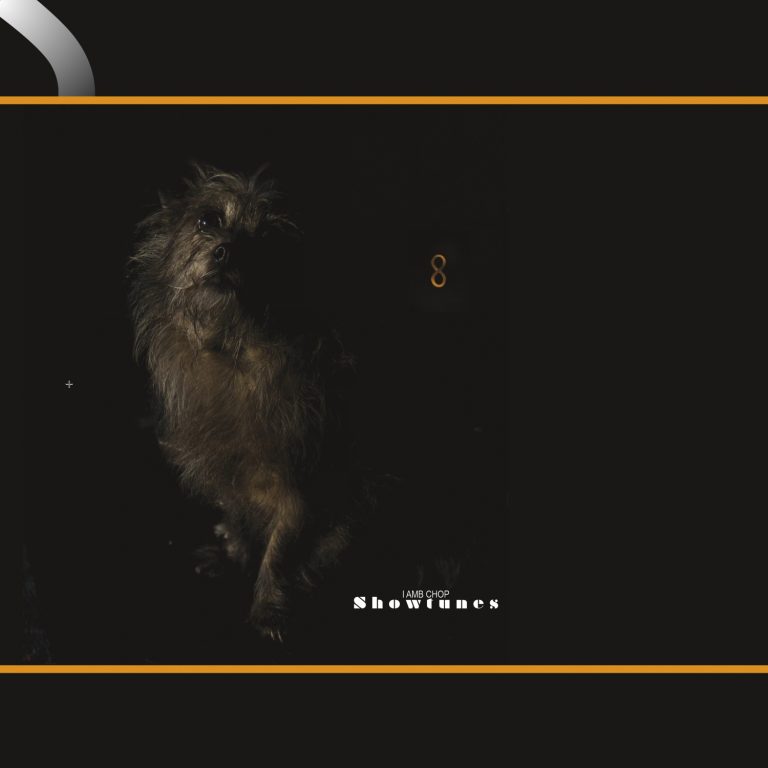If you are familiar with Lambchop’s music, the concept of show tunes probably doesn’t come to mind. But given Kurt Wagner’s poetic, descriptive lyrics, it’s not hard to imagine what a foray into musical theater would sound like for the aloof singer – odd and off-kilter as it may be. The band’s newest album, Showtunes, doesn’t stray too far from the same electronic, glitchy path as their past few albums, but mostly ditches the autotuned vocals that have polarized fans since FLOTUS. Instead, Wagner pushes the band’s sound into more obscure territory, crafting an album of atmospheric, almost avant-garde soundscapes. Showtunes sounds like a musical you might hear inside the Black Lodge from Twin Peaks – a cryptic, brooding journey that entices you to search through its labyrinthian corridors to find the warm tones radiating from within.
Whereas the previous two albums from Lambchop would feel more at home in a gloomy futuristic lounge bar, Showtunes injects more theatricality. Once again, Wagner dodges the safe path, gambling on another shift in style and technique. At this point in his career, Wagner is an artist who approaches a project with the ideas fully formed, and with decades of experience and a few key collaborators behind him, his latest experiment is a success.
As the curtain lifts and the spotlight comes into focus on opening track “A Chef’s Kiss”, Wagner invites us into his bizzaro theater. The song has a gentle warmth and sets a fitting tone for the album to come. Lyrically, “A Chef’s Kiss” is one of the most vivid and descriptive tracks on the record as Wagner once again shows off his uncanny ability to make the mundane feel significant: “It’s so hot, the air has second thoughts / Won’t last a winter’s memory / The smell of gas and fresh-cut grass / Won’t last beyond us at all,” he begins.
Though piano has often played an important role in Lambchop’s sound, it’s never taken center stage as it does on Showtunes. The change in approach emerged from Wagner discovering he could convert his guitar tracks into midi piano. “It was a revelation that from those conversions I was able to manipulate each note and add, subtract, arrange the chords and melody into a form that didn’t have any of the limitations I had with my previous methods of writing with a guitar,” he said. The results sound surprisingly confident in their execution. Wagner deftly arranges his newfound ‘piano’ skills around his grizzled voice with some help from Ryan Olson, Andrew Broder, and Cj Camerieri, who worked with Wagner to flesh out the tracks and add the layered horn arrangements. Wagner also brought in Yo La Tengo’s James McNew to play upright bass on the record, lending a richness that resonates with Wagner’s distinct vocals. As has been true across many of Lambchop’s albums, Wagner chooses his collaborators wisely, allowing their respective talents to highlight his own.
An initial impression of Showtunes might be somewhat dour and somber, but it’s clear Wagner hasn’t lost his sense of humor. An instrumental track with a silly name like “Impossible Meatballs” and lyrics like “Let’s say that writer was an asshole / Let’s just say that asshole wasn’t me,” on “The Last Benedict” are just a few indicators that Wagner is gently nudging us not to take any of this too seriously.
Album centerpiece “Fuku” teases us with an extended intro of clicking beats and chopped vocal samples that could have been taken from either of the band’s previous two records, before suddenly shifting into a distorted, slow-motion waltz. “If it’s the last thing we do together / Let’s fall in love,” Wagner exclaims as the song spools out like hot sugar. A gorgeous horn section swells around him and shuffling electronic drums pitter-patter in the background, all anchored by a steadfast piano. It’s the longest track on the album at roughly seven minutes, yet Wagner keeps the lyrics succinct and to the point. For a writer that’s known for diverging into sudden obscure tangents, Wagner employs restraint on many of the songs on Showtunes.
In typical fashion, Wagner saves the most direct and unadorned song for last in “The Last Benedict.” Here, he lets his voice shine through with no effects or modulation to hide any imperfections. The raw beauty of it is captivating, and the tender musical arrangement, which is one of a few that bring his acoustic guitar back into the fold (to excellent effect), only amplifies his performance. It’s one of Lambchop’s best songs in years and a fantastic endnote to let the curtain fall on.
Throughout Showtunes, Wagner demonstrates that theatricality and showmanship can manifest in many different and sometimes subtle forms. He may not draw in many new fans from this one-act performance, but it’s still one of the band’s most intriguing and well-executed productions nonetheless.

